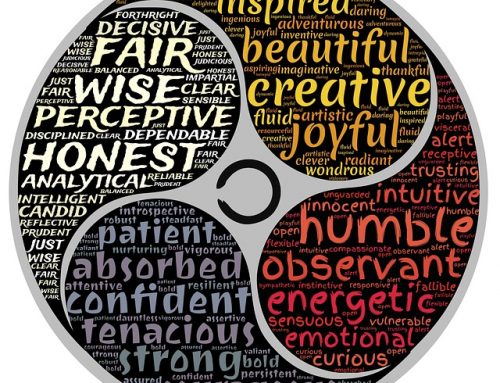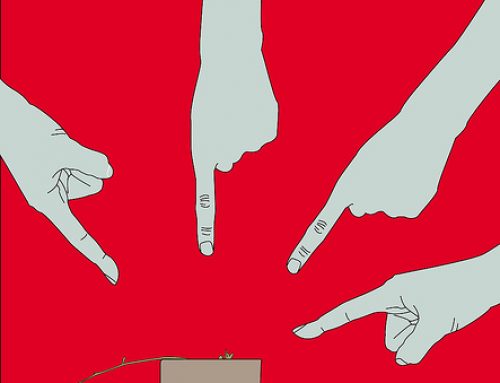Sometimes doing what seems right is counterproductive.
When your car skids it seems right to hit the brakes. When you’re on a plane in distress and the oxygen masks drop for everyone to put on, it seems right to place them on your kids first. Both are natural instincts that work completely counter to what you are trying to achieve, namely avoiding a crash and making sure your kids are safe (respectively).
The same counter intuition is at work with praising your children for their intelligence. If your intention is to have your kids develop their capacities to adapt to change, be high achievers, be willing to try new things, be successful and happy then focussing your praise on how “smart” they are is exactly the wrong thing to do.
Here’s why.
Prizing intelligence means becoming risk averse
The nature of life is to have breakdowns and problems, and to have breakdowns and problems that keep getting bigger. Regardless of how smart you are, you will come up against a problem that you cannot solve with your native intelligence alone.
For children who have learned that being smart is where it’s at — and they learn that quickly from what we praise and reward them for — getting things wrong, or not knowing creates a cognitive dissonance. The little cuties can’t reconcile not knowing, or failing to easily figure something out with their identity of being smart.
They will then seek to protect their identity of being smart. How?
By becoming risk averse.
If they have any say in the matter, they won’t try anything that might put their “smartness” in jeopardy. If at all possible, they will avoid trying new things, and will give up more easily when confronted with difficulty.
My story
I can see how this happened in my own life. One day Miss. Jones, my standard three teacher, announced “Close your books, it’s time for mental arithmetic.” Mental arithmetic meant having to answer basic arithmetic questions posed by the teacher without using pen & paper. She then asked me a question.
I froze.
I remember being aware of all the faces looking at me, and being horrified that they would all think I was stupid. I wasn’t thinking about the problem but about what everyone thought of me.
This little incident had a profound effect on me. All through my life, the praise I received for doing well was for being smart. When I did well at school I was known as a “bright boy” not for being a hard worker. All the praise I heard around me was for people who were “brains”. It was rare to hear anyone being praised for working hard.
Not surprisingly, being thought of as smart was important to me, and after that brain-freeze mental arithmetic moment, I made an unspoken decision to avoid anything that could make me look stupid.
As I look back on my life I realize how much I “stayed in my crease” for fear of looking stupid, and today as I teach and interact with young people I see the same tendency to play it safe.
This phenomenon has been observed scentifically.
In a 2007 scientific paper entitled “Subtle Linguistic Clues Affect Children’s Motivation” in Psychological Science, Dr. Carol Dweck showed that all else being equal, children who are praised for working hard are more willing to take on harder tasks, and when they do, they become more engaged with it.
Children who are praised for being smart, become unwilling to take on harder tasks, and give up easier.
This makes intuitive sense to me. When we primarily praise kids for their intelligence we tell them that that being smart is the name of the game.
Kids then learn to value intelligence and associate that trait with their identity. They will take actions to protect their image of being smart; they will avoid taking risks, getting things wrong, and failing—the very things they need to do to be successful high achievers.
Intelligence is over rated
Yet we continue to focus on praising intelligence. It’s instinctive because we think intelligence is THE key human trait for success. It’s not. Intelligence is over-rated and mis-understood.
There is no famous scholar, artist, businessperson, sportsperson who succeeded because of their natural talent or intelligence.
Not one.
Not Woods, Obama, Mozart, Einstein, Naipaul, Lara or Montano—to name a few. Every one of them worked at their pursuit on a daily basis for years on end.
Machel Montano, the Trinidadian superstar, didn’t succeed on his natural talent
I was fortunate to have met Elizabeth Montano, (Machel’s mother) at a forum on education at the Lok Jack Business school on March 26th 2012, and she’s quite clear that Machel is who he is today, not because of any natural talent, but rather because he worked extremely hard at something that he was good at and loved.
To hear her talk about the hours of practice and the number of contests and performances that Machel endured as a teenager and young adult will blow your mind. Machel put in his 10,000 hours while most of his ‘bright’ and gifted compatriots were earning praise for being smart. (Note: 10,000 hours was made famous in Malcolm Gladwell’s book “Outliers” as the required effort for expertise or greatness)
After listening to Mrs. Montano it’s clear that Machel was indeed blessed, blessed with having great parents who fostered within him the fires to work hard at what he loved.
Being smart is not required
Being intelligent and naturally gifted is of course an asset, but by themselves intelligence and natural talent do not equate to success and high achievement.
There are millions of intelligent people, people with natural talent that never amount to anything. Why? Because they don’t do the work required for greatness.
Praise them for hard work
Wanting your kids to be smart is natural. It feels right to praise kids for cleverness and intelligence. But as in the situation of the car skid, or when the oxygen masks fall in an airliner, doing what feels right is in fact the wrong solution.
If you want your kids to be undaunted by failure, to keep trying until they succeed, to bravely go where no one has gone before, then praise them for dedication, perseverance and plain old hard work.
Their intelligence will take care of itself.





That is very right ! I remember reading somewhere that being a concertpianist was 10% gift and 90% work !
[…] because parents and teachers wish to motivate students, too much praise for intelligence has also been scientifically shown to have an adverse effect. Children who are praised for being “smart” have a greater tendency to give up when […]